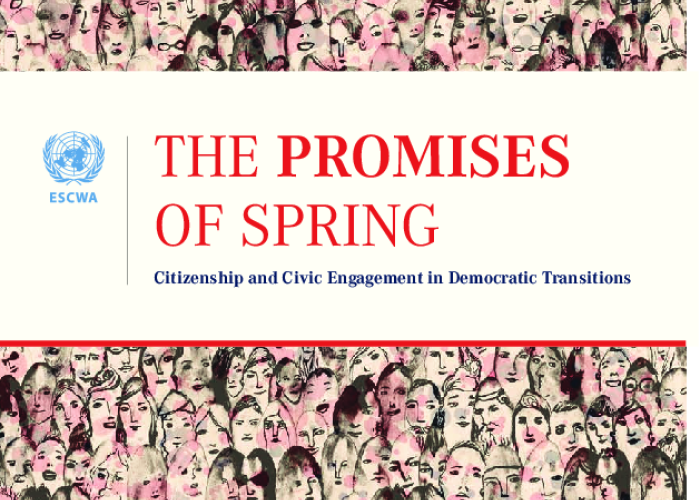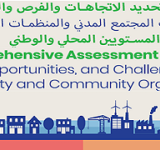The Promises of Spring: Citizenship and Civic Engagement in Democratic Transitions

This publication,put forth by the Economic and Social Commission for Western Asia (ESCWA),examines the Arab uprisings and the political,social,and economic contexts in which they occurred. The publication begins with a chapter entitled Text and Context: Why Arabs Rose in Defiance? It considers the overall context in which Arab uprisings took place and aims to provide a broad overview of the factors that may have contributed to the eruption of popular dissent. Chapters two to four address the challenges to building consensus,maintaining social cohesion in transition,and engaging with the promises of spring,through three key entry points: Arab Uprisings and the Civil State,focusing on constitutional revisions,the role of religion and the definition of a civic state using Egypt and Tunisia as two cases; Social Justice and Consensus-building,underlining four interconnected social deficits and arguing that,even after the uprisings,Governments continue to approach social issues from the perspective of crisis management rather than the rights and obligations of citizenship; and Social Cohesion and Social Cohesion and Transitional Justice,exploring the context for transitions justice in Arab countries and the tools and mechanisms available. The last chapter,“Arab Transitions: Alternate Paths and Possible Trajectories”,will attempt to address future scenarios for ongoing transitions in the region then infer their possible impact on issues such as participation,consensus-building,social justice and social cohesion. It will also propose policy recommendations on the infrastructure needed to institutionalize participatory politics,empower civil society organizations and enshrine the principles of citizenship.


